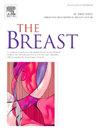Breast cancer patients with a pre-existing mental illness are less likely to receive guideline-recommended cancer treatment: A systematic review and meta-analysis
IF 5.7
2区 医学
Q1 OBSTETRICS & GYNECOLOGY
引用次数: 0
Abstract
Breast cancer is the most commonly diagnosed cancer worldwide, with early detection and advanced treatments contributing to declining mortality rates. However, managing comorbid conditions, particularly mental illness, presents significant challenges for cancer treatment. This study systematically reviews and meta-analyses the impact of having a pre-existing mental illness on breast cancer treatment utilisation, focusing on specific treatments and comparing different mental illnesses. MEDLINE, EMBASE, CINAHL, and APA PsycInfo databases were searched. After screening, fifteen studies were identified as meeting the inclusion criteria. The included studies were predominantly from high-income countries, and compared breast cancer treatment in patients with and without pre-existing mental illnesses including anxiety, mood disorders, schizophrenia and psychotic disorders, and neurodevelopmental disorders. Meta-analysis revealed that patients with mental illnesses were significantly less likely to receive guideline-recommended treatments (OR = 0.78, 95 % CI 0.72–0.83, N = 5), chemotherapy (OR = 0.56, 95 % CI 0.34–0.78, N = 6), or radiotherapy (OR = 0.79, 95 % CI 0.66–0.93, N = 5). They were also significantly more likely to undergo mastectomy instead of breast-conserving surgery (OR = 1.38, 95 % CI 1.24–1.52, N = 4). Findings were consistent across different mental illnesses. This review highlights the need for targeted interventions to improve healthcare access and address provider biases, promoting better integration of mental health and oncology care.
先前存在精神疾病的乳腺癌患者不太可能接受指南推荐的癌症治疗:一项系统回顾和荟萃分析。
乳腺癌是世界上最常见的癌症,早期发现和先进的治疗有助于降低死亡率。然而,管理合并症,特别是精神疾病,对癌症治疗提出了重大挑战。本研究系统地回顾和荟萃分析了已有精神疾病对乳腺癌治疗利用的影响,重点关注具体治疗方法并比较不同的精神疾病。检索MEDLINE、EMBASE、CINAHL和APA PsycInfo数据库。筛选后,15项研究符合纳入标准。纳入的研究主要来自高收入国家,并比较了患有和不患有精神疾病的乳腺癌患者的治疗,这些疾病包括焦虑、情绪障碍、精神分裂症和精神病以及神经发育障碍。荟萃分析显示,精神疾病患者明显不太可能接受推荐的治疗方案(或= 0.78,95% CI 0.72 - -0.83 N = 5),化疗(OR = 0.56, 95% CI 0.34 - -0.78, N = 6),或放射治疗(OR = 0.79, 95% CI 0.66 - -0.93, N = 5)。他们也更有可能接受乳房切除术,而不是手术(OR = 1.38, 95% CI 1.24 - -1.52, N = 4)。在不同的精神疾病的研究结果是一致的。这篇综述强调了有针对性的干预措施的必要性,以改善医疗服务的可及性和解决提供者的偏见,促进精神卫生和肿瘤护理的更好整合。
本文章由计算机程序翻译,如有差异,请以英文原文为准。
求助全文
约1分钟内获得全文
求助全文
来源期刊

Breast
医学-妇产科学
CiteScore
8.70
自引率
2.60%
发文量
165
审稿时长
59 days
期刊介绍:
The Breast is an international, multidisciplinary journal for researchers and clinicians, which focuses on translational and clinical research for the advancement of breast cancer prevention, diagnosis and treatment of all stages.
 求助内容:
求助内容: 应助结果提醒方式:
应助结果提醒方式:


